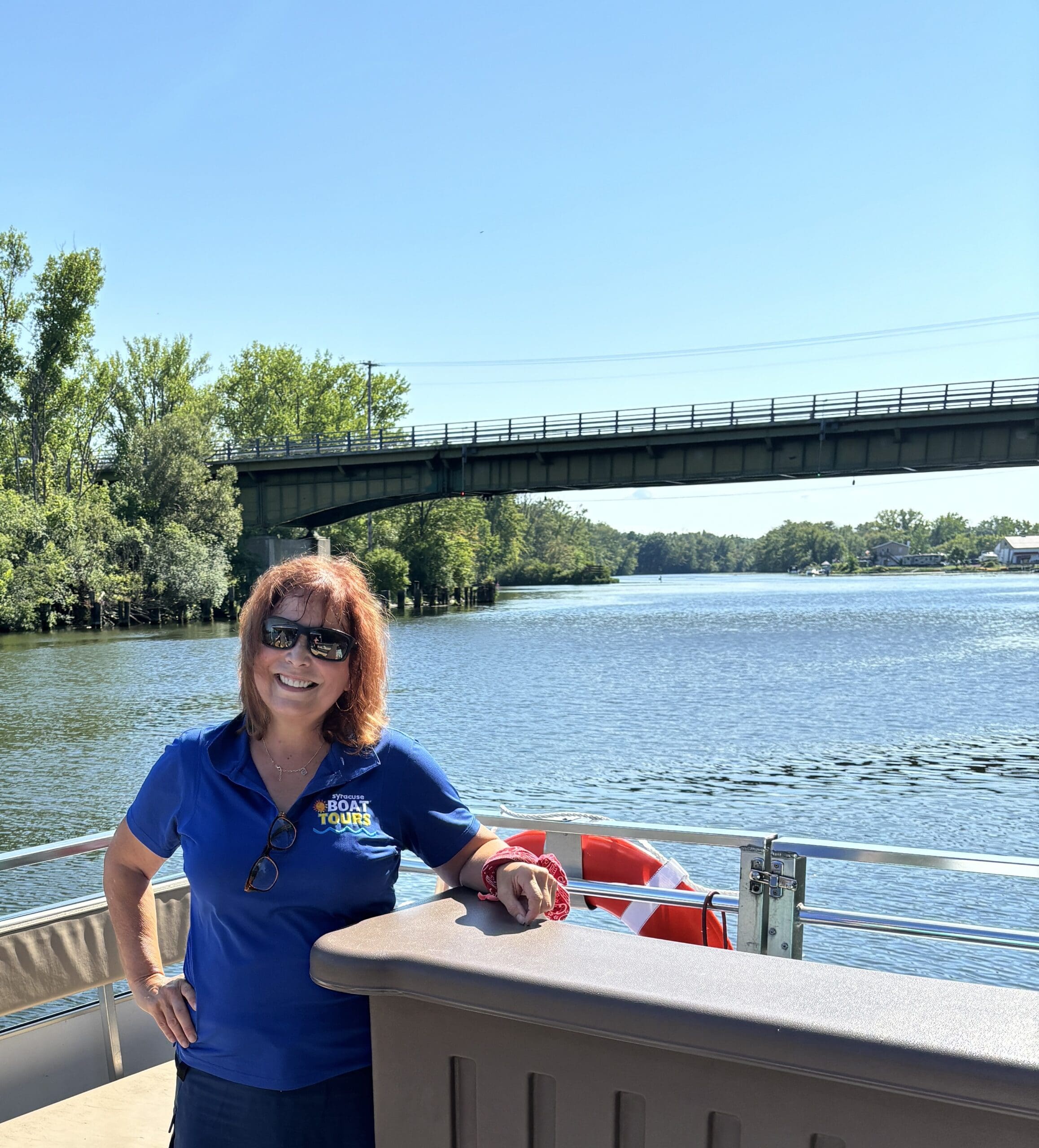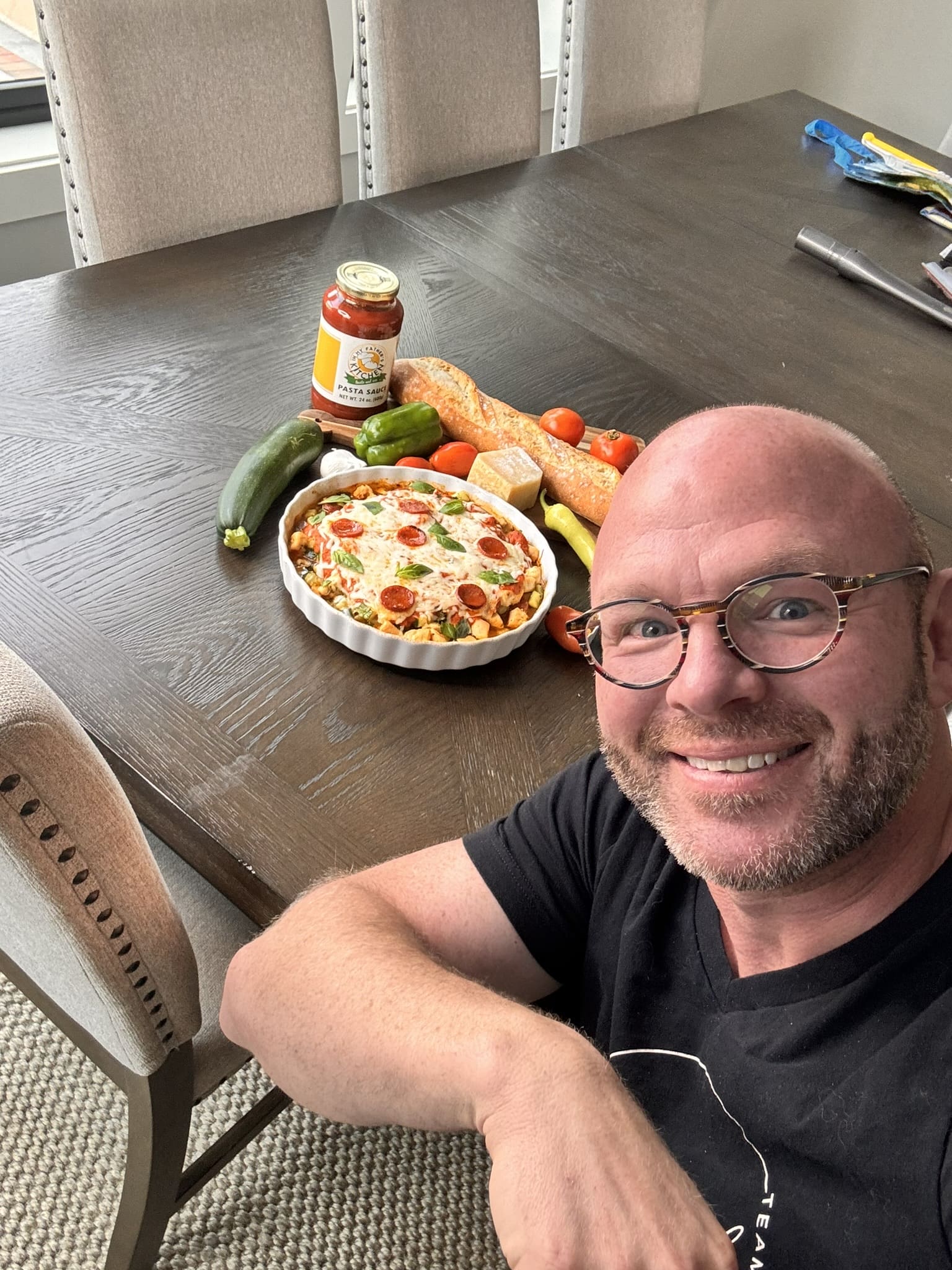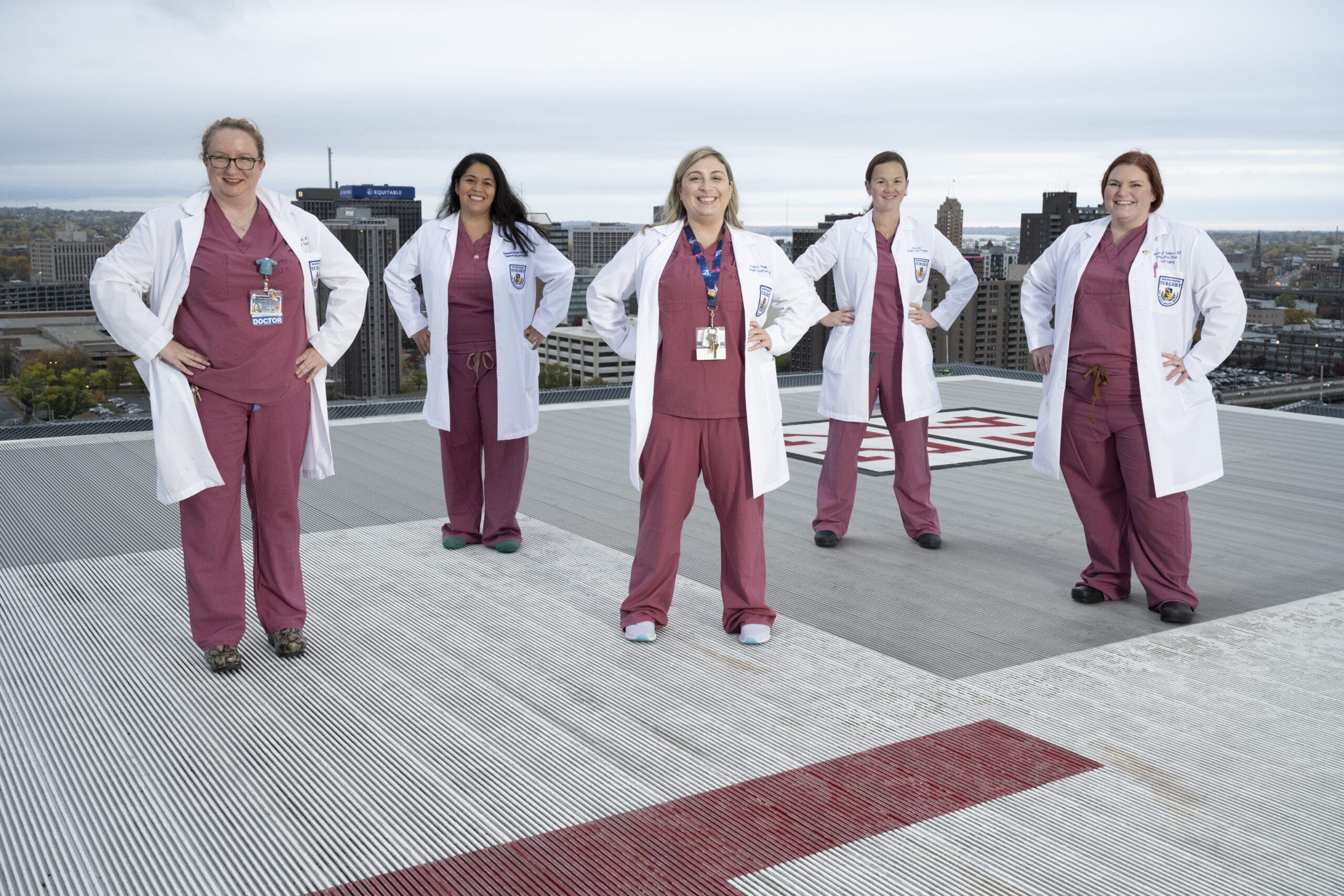The Heart Hero
By Lorna Oppedisano | Photography by Sara Felice
Audrey Burian has an unlikely hero: her 5-year-old daughter, Chloe. A little more than a year ago — after months of testing and surgeries — Chloe was diagnosed with Marfan syndrome, a rare connective tissue disorder that affects about one in every 5,000 people.
“When we went through [the experience], we were so scared and overwhelmed, and now we feel blessed,” Audrey said, considering the last year in the family’s life. “I know that sounds really weird. It took me a while to get there. But I feel blessed because we know it, and we can manage it.”
Five years ago, Audrey’s anticipated due date for Chloe came and went. Ten days later, she was induced. Audrey’s placenta abrupted, she started to bleed out and almost lost her youngest daughter. That’s where Chloe’s adventure began, Andrey said.
The family was worried Chloe might not meet her milestones, and began early intervention. Everything seemed fine, except one thing: her feet were turning in. At 1 year old, she had casts put on her feet. But things kept getting worse.
At 3 years old, Audrey and her husband noticed Chloe had signs of scoliosis, an ailment not typical for a child that young. They found out she had three cysts on her back. With severe spinal surgery, they were removed.
Within a month, Chloe had another MRI, and doctors discovered she had a severely tethered spinal cord. Another two months later, she was back in surgery to have it released.
By November 2015, the family was preparing for Chloe’s foot surgery. Audrey and her husband’s “gut alarms” were sounding. Something wasn’t right, they thought. So Audrey, with the help of her father, took to the Internet.
“I just started researching her characteristics. She has long arms, long fingers. The cysts. She has crowded teeth. Her teeth are very brittle,” Audrey explained. “And everything kept going to this connective tissue disorder.”
They opted to cancel the scheduled surgery and figure things out. All roads led to the Boston Children’s Hospital. From there, they were directed to see a cardiologist and undergo genetic testing. Not being able to get an appointment for either locally, they went back to Boston a few weeks later, and saw five specialists in two days.
Then on Dec. 15, 2015, Audrey received the call she’ll never forget. Brimming with emotion, she recalled the day: “They called us and said, ‘Chloe has Marfan syndrome.’”
The voice on the other end of the line was calming, Audrey continued, explaining the hospital had plenty of experience dealing with children diagnosed with the illness, and while it is an incurable, life-threatening disease, Chloe was going to be OK. They suggested the family take time to absorb the information, celebrate the holidays, and come back to Boston in January.
The next year or so was filled with more than 20 trips to Boston and four surgeries. Chloe was in a wheelchair for most of the summer. She wears a back brace at night. She’ll be on heart medicine for the rest of her life. She’ll never be able to play high impact sports or exercise to exhaustion.
Needless to say, life is different for the whole family now.
Audrey has learned so much from her daughter, she said. “She’s taught me about life and that things aren’t really that bad. To see what she’s been through, she’s probably the strongest person I know,” she said. “And through it all, she smiles.”
On Saturday, April 1, Chloe will kick off the American Heart Association’s 2017 Syracuse Heart Walk at the SRC Arena & Events Center at Onondaga Community College.
The family got involved with the AHA a few years ago, after Audrey’s mother passed away unexpectedly of a stroke. They returned in 2015, and walked bearing the name Chloe’s Courage. The team ended up raising one of the largest sums of money, and gained the attention of the AHA.
The organization asked if the Burians wanted to share Chloe’s story. Audrey and her husband are typically private people, she explained, but the drive to assist others affected by the disease forced them out of their comfort zone. Sharing the story has actually helped the family take steps toward healing, Audrey said.
One of the most important lessons Audrey’s learned from the past few years is to be your own advocate. She hopes to spread knowledge of the signs of Marfan syndrome; knowing those signs is the key to victory, she said.
“So now that’s what we want to do,” Audrey said. “Get the word out and help other families.” SWM
To learn more about the American Heart Association and Heart Walk, visit heart.org.





